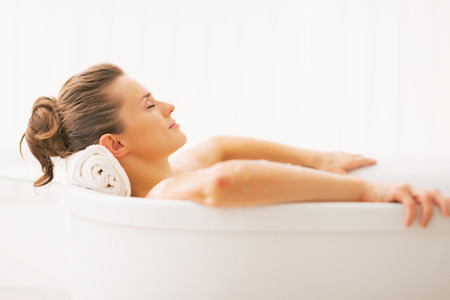New research has found that if you are struggling to get some shut-eye, taking a bath one to two hours before heading to bed could help you get a better night’s sleep.

INQUIRER.net stock photo
Carried out by researchers at The University of Texas at Austin in collaboration with the UT Health Science Center at Houston and the University of Southern California, the new study reviewed 17 existing studies to look at the effect of water-based passive body heating — heating the body using a warm bath or shower — on different sleep-related conditions.
These conditions included sleep onset latency (the length of time it takes to fall asleep), wake after sleep onset (the total amount amount of wake time during the attempted sleeping period), total sleep time, sleep efficiency (the amount of time spent asleep relative to the total amount of time spent in bed trying to sleep), slow-wave sleep and subjective sleep quality.
The findings, published in the journal Sleep Medicine Reviews, showed that taking a bath with an optimum temperature of between 104 and 109 degrees improved overall sleep quality, as rated by the participants, and sleep efficiency.
The researchers also found that when participants took the bath one to two hours before bedtime, it could also speed up falling asleep by an average of 10 minutes. The optimal time for a bath was also found to be 90 minutes before bed.
Like sleep, our body’s core temperature is also regulated by the circadian clock and is involved in the regulation of the sleep/wake cycle. Body temperature is higher in the late afternoon/early evening and at its lowest during sleep. It begins to rise later in the sleep cycle, acting as a biological alarm clock to wake us up.
The team explains that warm baths and showers can aid sleep by cooling down the body’s core temperature. The warm water increases the circulation of blood from the internal core of the body to the hands and feet. This efficiently removes body heat and causes a drop in body temperature. RGA
RELATED STORIES:
Lack of sleep linked to poorer mental health in college students
Losing sleep triggers viral loneliness, makes people less sociable—study